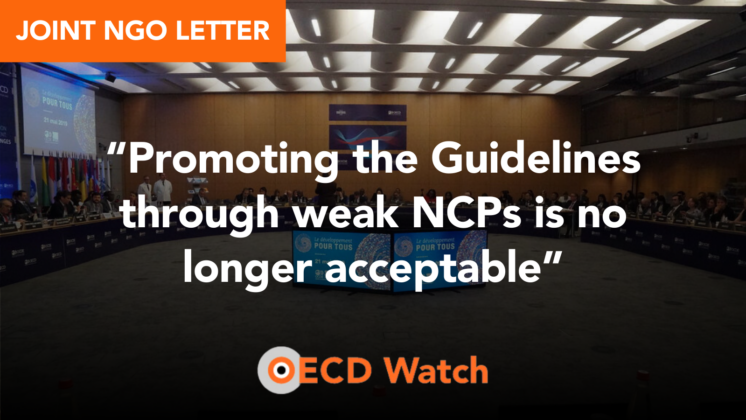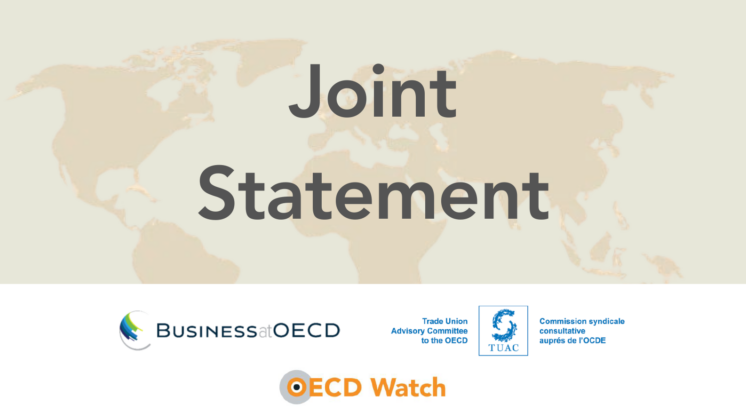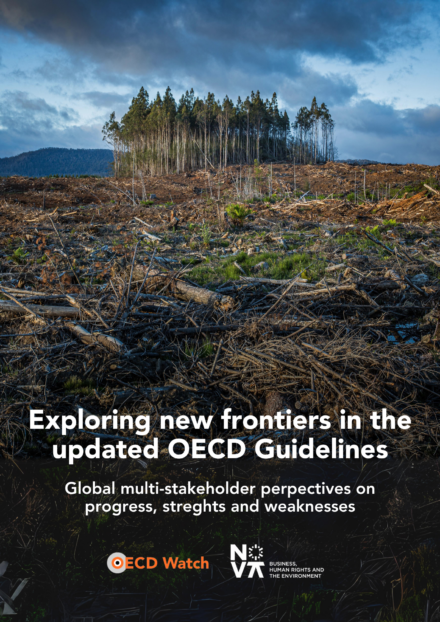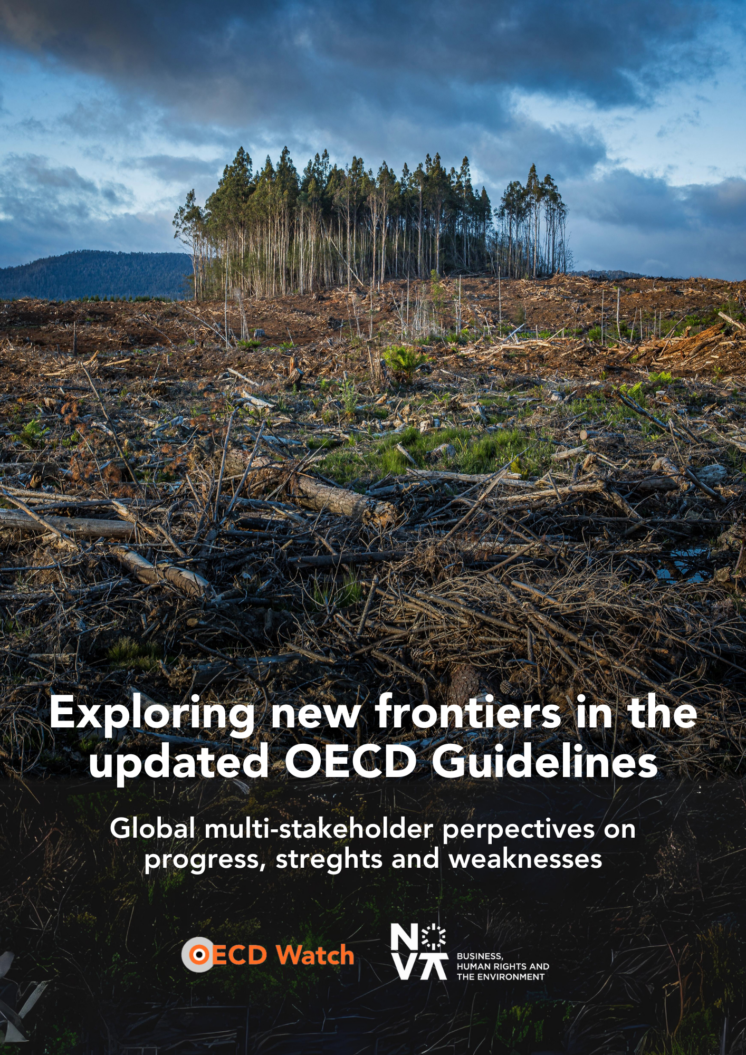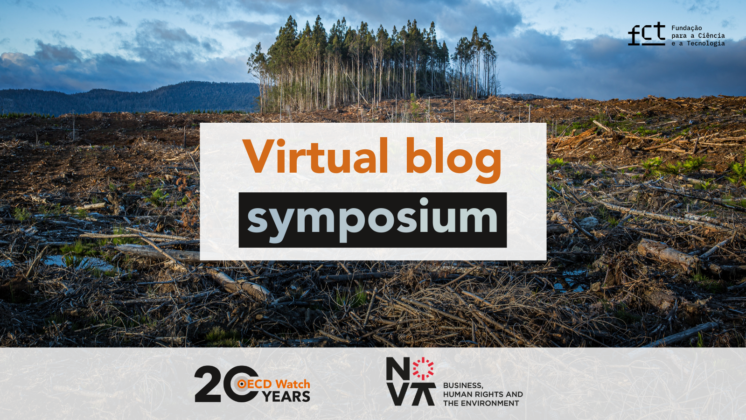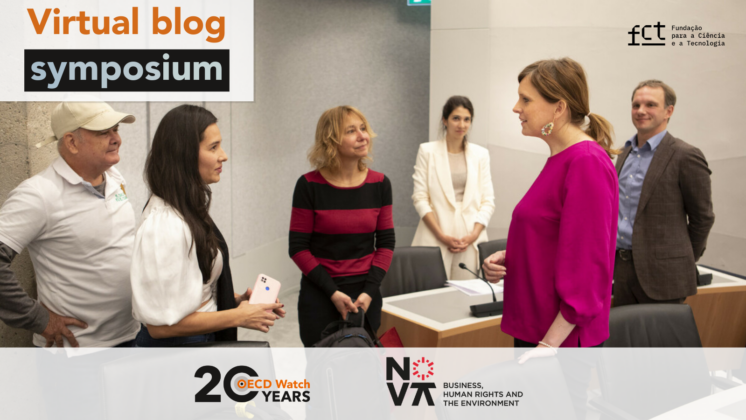Over the course of November 2023, OECD Watch hosted a series of workshops for civil society to learn and strategise about how the recently updated OECD Guidelines for Multinational Enterprises on Responsible Business Conduct (Guidelines) can be used in corporate accountability campaigns. Seventeen workshops were held focused on either exploring the updates on a specific new topic covered by the Guidelines, or presenting an overview and analysis of the updates tailored to the concerns and opportunities of a particular region. We were pleased to see nearly 500 people attend across the series, with many more listening back to recordings shared after each session.
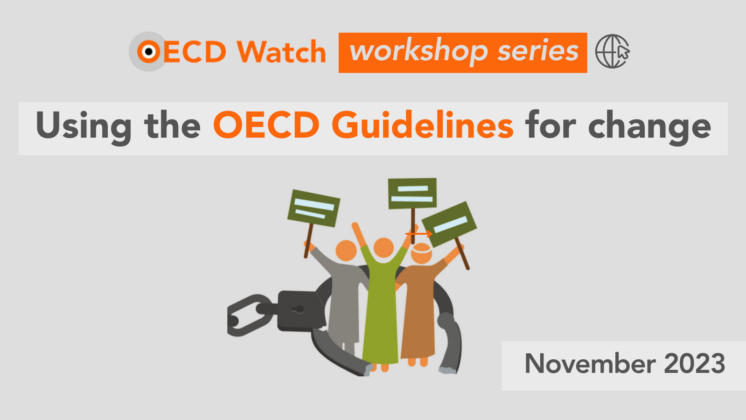
The series started with three regional sessions for Asia, Africa and Latin America and the Caribbean, and closed off with our final regional session for Central and Eastern Europe. Each provided an opportunity for civil society in these regions to discuss the relevance of the updated Guidelines to their own work and the potential for filing complaints to National Contact Points (NCPs). We invited a number of OECD Watch member organisations from each region to speak about their own experience using the Guidelines and filing complaints, providing practical guidance and advice to other civil society in the room.
Our topical workshops started with a session on technology and digitalisation, touching on the improvements included in the updated Guidelines and exploring how this text can be used by civil society to address harms related to science, technology, and innovation. Speakers from civil society working on this topic also highlighted the need for further practical guidance on the implementation of the Technology chapter. The second session focused broadly on human rights in the Guidelines, including the updates on human and environmental rights defenders, Indigenous Peoples, land rights, and meaningful stakeholder engagement. Speakers from civil society highlighted both the improvements made in the updated Guidelines on these topics as well as the areas in which the update did not go far enough.
The third session focused on the Environment chapter of the Guidelines, including the new text on climate change and a just transition. Perhaps one of the strongest additions to the Guidelines is that it calls on companies to ensure their business activities fall within the temperature goals of the Paris Agreement and play their own part in ensuring a just transition. This session focused on the strengths and weaknesses of the updated text on climate change and environment and provided an opportunity for civil society to strategise on how to utilise this text in complaints and wider campaigns.
Next in the series came a session on due diligence, explaining what that process entails and how the updated and clarified language on due diligence in the Guidelines can support civil society campaigns for corporate accountability. This was followed by a session focused on animal welfare, which is explicitly covered under the Guidelines for the first time. Since this is a new addition to the Guidelines, this session was an opportunity for civil society working on this topic to come together and discuss how the Guidelines could be a new campaign tool for strengthening animal protection.
In the last week of the series, we held a session on policy coherence that explored what the Guidelines and the 51 governments that follow the Guidelines have committed to in terms of fostering coherence and harmonisation of voluntary and mandatory measures promoting responsible business conduct. We were honoured to have Pichamon Yeophantong, member of the UN Working Group on Business and Human Rights, speak about legislative developments in the Asia-Pacific region related to responsible business conduct and the need to engage with countries that are not adhered to the Guidelines.
Our final topical workshop focused on National Contact Points and key things to consider when filing complaints against companies alleged to not meet the standards set out in the Guidelines. We had several OECD Watch members speak about their own experiences filing complaints at NCPs and throughout the session it was highlighted how strategic filing of complaints will often result in stronger, more effective cases.
If you work for civil society and are interested in seeing recordings of any of these sessions, you can reach out to us directly to request access. You can also see details of each workshop and the associated presentation slides on this page. We would like to thank the following organisations for sharing their own experiences and thoughts during the sessions:
- AccessNow
- Afrewatch
- Advocats san Frontieres
- Arisa
- BankTrack
- Business and Human Rights Resource Centre
- Cambodian League for the Promotion and Defense of Human Rights (LICADHO)
- Cividep
- ClientEarth
- Conectas
- Compassion in World Farming
- EarthRights
- European Coalition for Corporate Justice
- FOCO-INPADE
- Four Paws
- Front Line Defenders
- IT For Change
- Korean House for International Solidarity
- Libera
- Manushya Foundation
- Milieudefensie
- ProDESC
- Society for Threatened Peoples
- World Animal Protection






